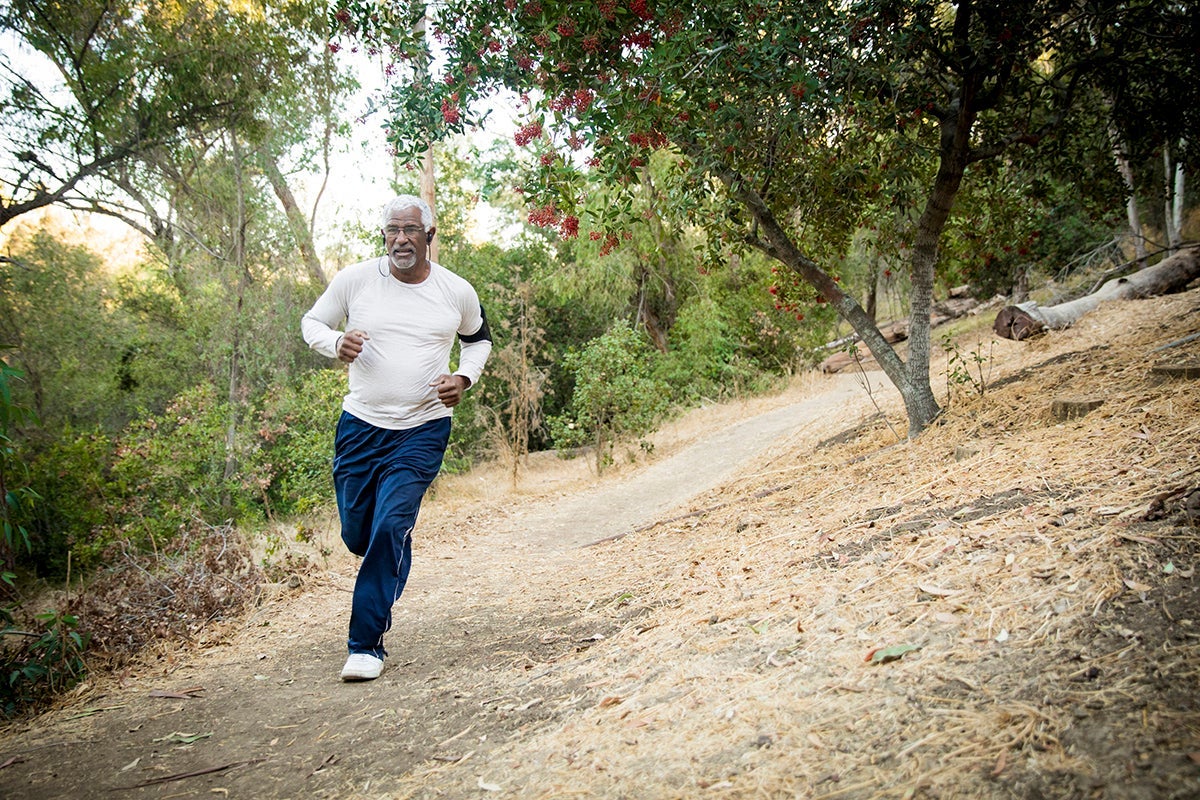Following healthy lifestyle habits at middle age may increase years lived free of chronic diseases

For immediate release: Wednesday, January 8, 2020
Boston, MA – Maintaining five healthy habits—eating a healthy diet, exercising regularly, keeping a healthy body weight, not drinking too much alcohol, and not smoking—at middle-age may increase years lived free of type 2 diabetes, cardiovascular disease, and cancer, according to a new study led by Harvard T.H. Chan School of Public Health.
The study was published online January 8, 2020 in BMJ. It is a follow-up and extension of a 2018 study, which found that following these habits increased overall life expectancy.
“Previous studies have found that following a healthy lifestyle improves overall life expectancy and reduces risk of chronic diseases such as diabetes, cardiovascular disease, and cancer, but few studies have looked at the effects of lifestyle factors on life expectancy free from such diseases,” said first author Yanping Li, senior research scientist in the Department of Nutrition. “This study provides strong evidence that following a healthy lifestyle can substantially extend the years a person lives disease-free.”
The researchers looked at 34 years of data from 73,196 women and 28 years of data from 38,366 men participating in, respectively, the Nurses’ Health Study and the Health Professionals Follow-up Study. Healthy diet was defined as a high score on the Alternate Healthy Eating Index; regular exercise as at least 30 minutes per day of moderate to vigorous activity; healthy weight as a body mass index of 18.5-24.9 kg/m2; and moderate alcohol intake as up to one serving per day for women and up to two for men.
They found that women who practiced four or five of the healthy habits at age 50 lived an average of 34.4 more years free of diabetes, cardiovascular diseases, and cancer, compared to 23.7 healthy years among women who practiced none of these healthy habits. Men practicing four or five healthy habits at age 50 lived 31.1 years free of chronic disease, compared to 23.5 years among men who practiced none. Men who were current heavy smokers, and men and women with obesity, had the lowest disease-free life expectancy.
“Given the high cost of chronic disease treatment, public policies to promote a healthy lifestyle by improving food and physical environments would help to reduce health care costs and improve quality of life,” said senior author Frank Hu, Fredrick J. Stare Professor of Nutrition and Epidemiology and chair, Department of Nutrition.
Other Harvard Chan School study authors included Dong Wang, Klodian Dhana, Xiaoran Liu, Mingyang Song, Gang Liu, Qi Sun, Laila Al-Shaar, Molin Wang, Eric B. Rimm, Ellen Hertzmark, Meir J. Stampfer, and Walter C. Willett.
Funding for the study came from grants UM1 CA186107, R01 HL034594, R01 HL060712, R01 HL088521, P01 CA87969, UM1 CA167552, and R01 HL35464 from the National Institutes of Health.
“Healthy lifestyle and life expectancy free of cancer, cardiovascular disease and type 2 diabetes: prospective cohort study,” Yanping Li, Josje Schoufour, Dong D. Wang, Klodian Dhana, An Pan, Xiaoran Liu, Mingyang Song, Gang Liu, Hyun Joon Shin, Qi Sun, Laila Al-Shaar, Molin Wang, Eric B. Rimm, Ellen Hertzmark, Meir J. Stampfer, Walter C. Willett, Oscar H. Franco, Frank B. Hu, BMJ, online January 8, 2019, doi: 10.1136/bmj.l6669
photo: iStock
Visit the Harvard Chan School website for the latest news, press releases, and multimedia offerings.
For more information:
Nicole Rura
617.432.6141
nrura@hsph.harvard.edu
###
Harvard T.H. Chan School of Public Health brings together dedicated experts from many disciplines to educate new generations of global health leaders and produce powerful ideas that improve the lives and health of people everywhere. As a community of leading scientists, educators, and students, we work together to take innovative ideas from the laboratory to people’s lives—not only making scientific breakthroughs, but also working to change individual behaviors, public policies, and health care practices. Each year, more than 400 faculty members at Harvard Chan School teach 1,000-plus full-time students from around the world and train thousands more through online and executive education courses. Founded in 1913 as the Harvard-MIT School of Health Officers, the School is recognized as America’s oldest professional training program in public health.


